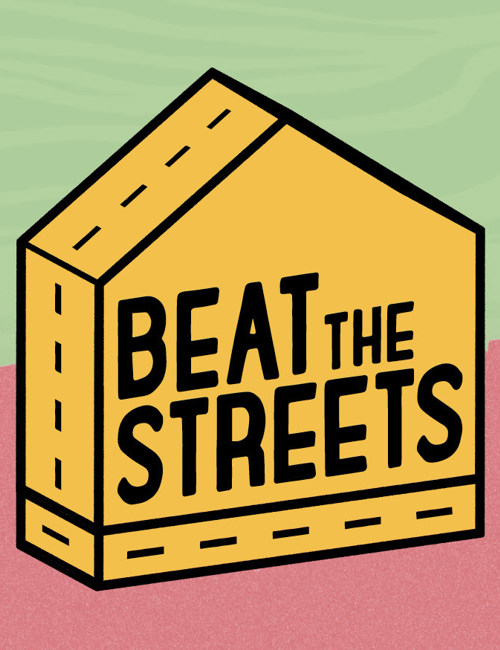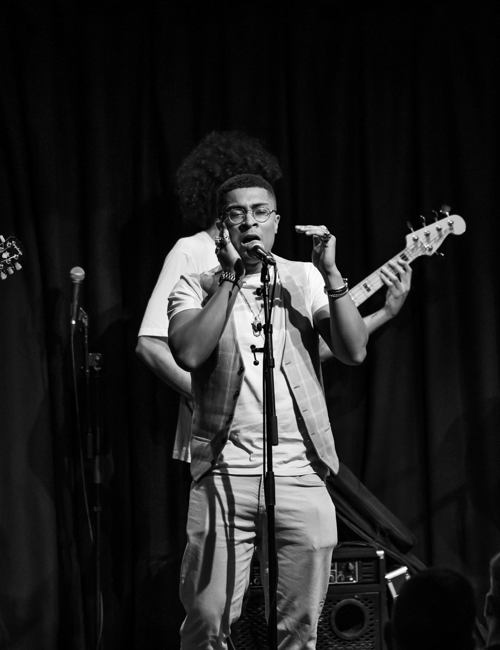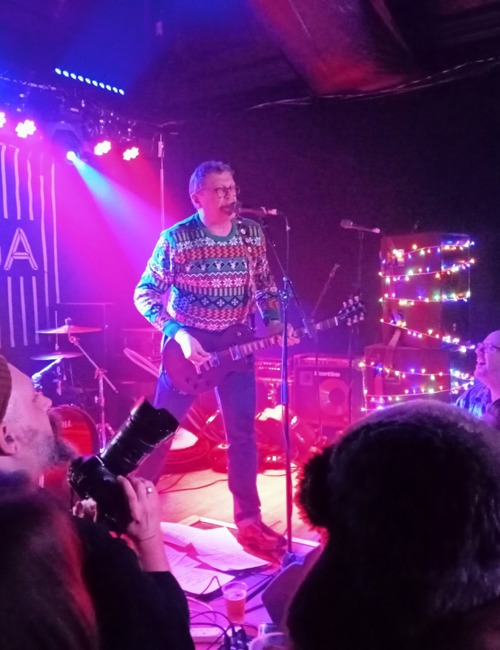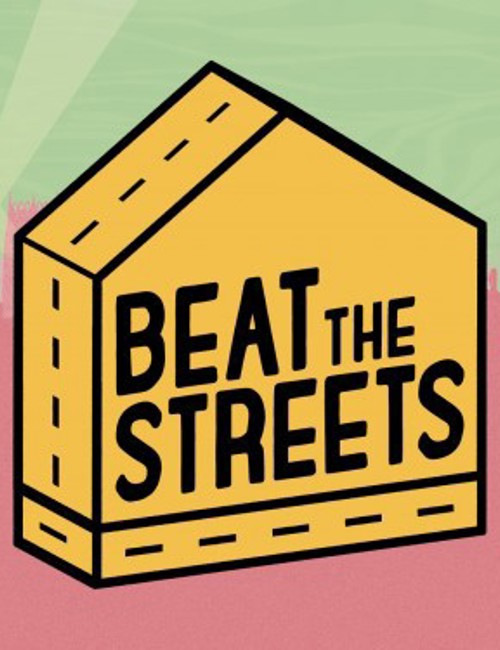Jackie P has been a radio DJ and presenter for over seven years. A stalwart of Nottingham’s music scene, she presents The Breakfast Show on Kemet FM, who’ve been celebrating their tenth birthday this year by hosting a series of events, with lineups boasting everyone from Bobby Valentino to Sweet Female Attitude. In celebration of the radio station that champions urban music and the culture of Nottingham’s African and Caribbean communities, we grabbed the legendary presenter for a natter about her place within the city’s institution...

How did you get into radio presenting?
A radio presenter for BBC Radio Derby called G-Man got me into it; he ran Kemet at one point and when he left, he told me to start thinking about doing radio. I always wanted to, but never thought I’d be able to. He said to go to the Kemet training, so I did, and that was it. While I was doing Kemet, I was also helping out Bea Udeh on BBC Radio Nottingham, so she helped me too. When I was a kid, I always listened to radio, probably more so than TV. Back in the day, it was always BBC Radio 1. Eventually I did a music journalism course at the University of Derby and I went from there. I love the fact that I can engage with people, talk to them about what they want to talk about, and be able to help people achieve their goals and dreams.
Kemet was founded ten years ago to more robustly and accurately represent the cultures of the African and Caribbean communities in the media. What kind of problems still exist there, and what can we learn from what Kemet FM has done?
You’re forever going to have such issues, but it doesn’t mean it’s right. I feel the media doesn’t help. Certain newspapers – what I like to call “clues-papers” – push information that can incite hate, and people will jump on the bandwagon. That’s where things go wrong.
You go to certain areas and you wonder “Why is this place run down?” Weapons, guns and gang problems are all formed by pushing certain groups of people together. I remember when I first moved to Nottingham, there’d be the Radford gang versus the St Ann’s gang. What Kemet try to do is bring the community together. We put on events like Rock ’n’ Reggae to bring together the communities in places like Radford, St Ann’s, and the Meadows. It’s worked, we’ve been successful.
What was Kemet FM like in the early days, compared to today?
It’s always been a place that’s wanted to enable people to get into media and allow them to start their journey. Kemet was a training programme for presenters; people were able to go live on air, which would be an impossibility anywhere else. You can’t just go live on air at the BBC, there’s just no way. Kemet helped people and encouraged them to fulfil their dreams. People who’ve worked here are now working at the BBC, BBC Asian Network, some of them have gone off to work for BBC London, one of them is on London TV now. We’ve encouraged that, and allowed that to happen; that’s due to the progression of wanting to allow people to fulfil their dreams.
What’s the secret to Kemet’s longevity?
We play such a wide variety of music. Obviously we’re not playing thrash metal or heavy rock because we’re an urban radio station, but on a Sunday you get your old-school soul, there’s the reggae show for the reggae heads, magazine-type shows, and The Soca Show for people who love urban music. There’s a show for everyone, that’s why I think we’ve survived. I do The Breakfast Show and, for the first hour, I do old school for old heads waking up, then I’ll go more musical for all the kids going to school in the car. A lot of stations’ databases are quite limited, but ours is vast. The majority of people can ring up and ask for a track and we’re likely to have it.
How has the rise of the internet and the digital revolution affected radio stations?
I remember back in the day when radio presenters had to chase promoters, but now it’s the other way around. It’s really helped radio, because we can now access so much more music so easily, like on SoundCloud, or from artists who directly send you their stuff.
What do you look for in a track?
I champion conscious lyrics. I’m interested in political tracks, social awareness tracks, and tracks that talk about positivity. I’m not interested in negativity.
What’s the dynamic like between all the presenters?
People come and go in the station during the day, but we all know each other. Presenters will ring in on each other’s shows to say they’re loving it and request tracks, so we all support each other, and there’ll always be someone there to cover someone if they’re not there. We’re like a big family.
What are your favourite things about hosting The Breakfast Show?
I love it when people who really love the show call in and ask me what the track is. I’m introducing people to new music and I love it when people are talking about Nottingham music, and educating people in music.
Kemet has always had a big focus on the community as well as music…
I give a big shout-out to the community because people really do get behind it, that’s how we’re able to run as a non-profit organisation. We’re a community radio station; whenever something’s going on in the community, we tell people about it.
On The Breakfast Show, every twenty minutes, I’ll play some home-grown talent. When people send things in, it could be someone in their seventies saying they’ve done a track, and that would interest me. On the mid-morning show, Christine will always talk about health and well-being within the community, as well as all the events going on. Monday to Friday, I get Babbling Bates to come in and we talk about things happening in Nottingham, so people are always clued up. We’re an informational, invitational radio station.
What Nottingham artists do you rate at the moment?
I’m loving Ronika and N-Voy at the moment. I’m a house girl so I just love that kind of music. One I’ve always loved is J.Gold, and Nina Smith; she’s doing very well, I’m very proud of her. I think it was in Iceland that I saw a woman singing one of Nina’s songs on a massive stage in front of thousands of people and I just thought “What an achievement.”
Before, it was only certain types of music that were accepted in Nottingham, but now you’re getting grime artists, hip hop artists, all different types of music. Parisa runs Acoustickle, which is showcasing different, beautiful styles of music and poetry. Then there’s Blackdrop where you can go and share your poetry; there’s so much happening.
What do you see for the future of Kemet?
I just see it going from strength to strength. People come and go, and once they’ve left, they go on to big things. I think Kemet has been the bottom rung of the ladder for a lot of people, but I think that it’s a station that’s important. The city needs an urban radio station because I just don’t think that we have anything like that, other than Kemet.
Is there anything else you’d like to say to LeftLion readers?
We, as a community, need to come together and help each other. It’s not about segregation, and it’s not about trying to step on people’s heads. It’s about being that community you hear your grandma talking about, and how it used to be back in the day. Why can’t it be today? I don’t want it to sound like a cliche or sound soppy but the word “unity” is in the word “community”, so let’s get together and be a city of change.
Kemet FM continue their tenth birthday celebrations with The Three Degrees at Saltbox Bar on Sunday 24 September.
We have a favour to ask
LeftLion is Nottingham’s meeting point for information about what’s going on in our city, from the established organisations to the grassroots. We want to keep what we do free to all to access, but increasingly we are relying on revenue from our readers to continue. Can you spare a few quid each month to support us?




